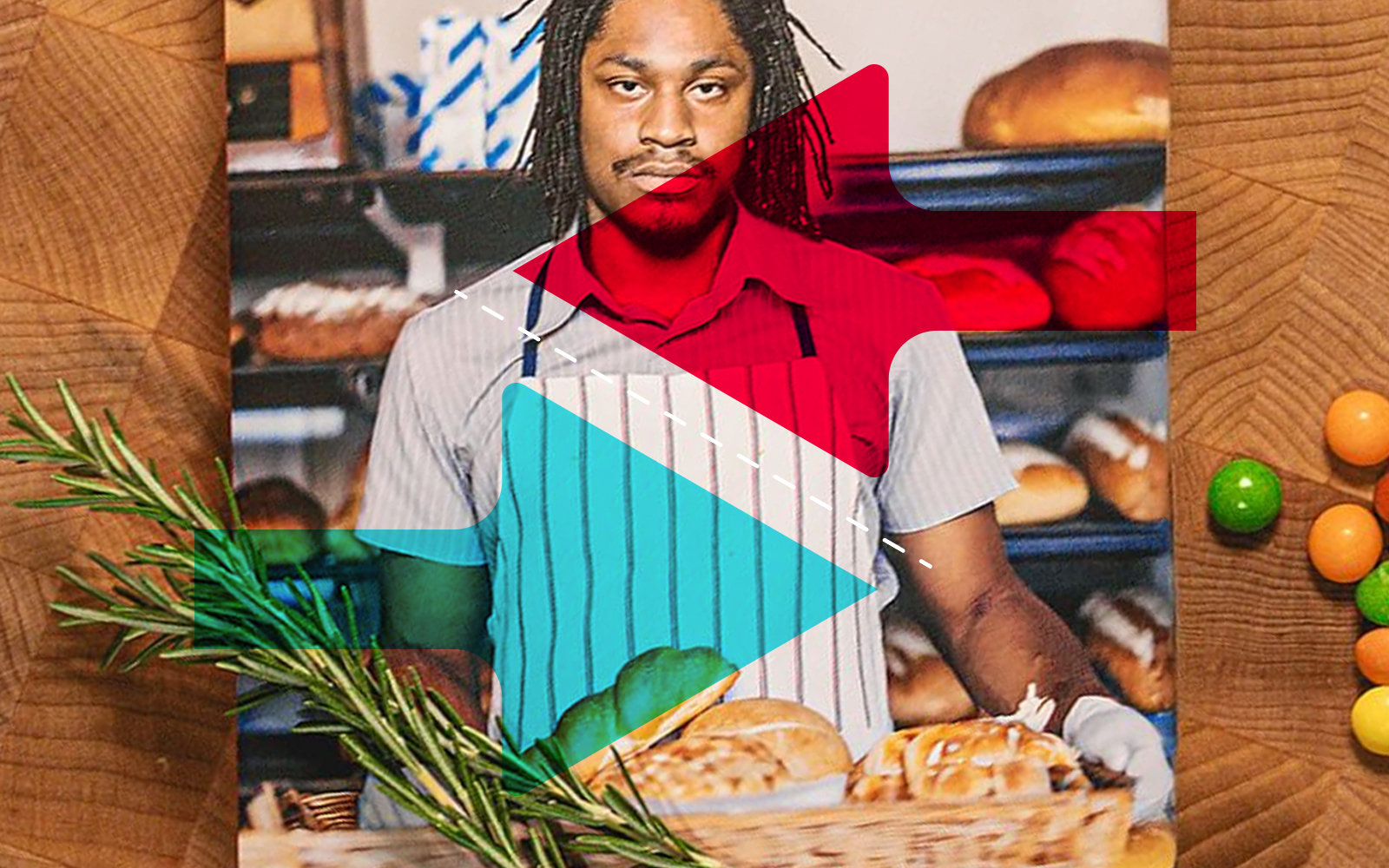
Last week, news surfaced that Marshawn Lynch was releasing a cookbook called Yeast Mode. But it turned out to be a fake product designed to capitalize on earned media, get attention, then counter-sell a sports app.
Is the head fake a new trend…and does it help or hurt the brand? Let’s hear from two Copacino Fujikado voices:
The other day, I heard on several news outlets that Marshawn Lynch was releasing a cookbook called Yeast Mode: Baking with Marshawn with an August 18 release date. Perfect, I thought. I have a good friend who spent the pandemic perfecting her sourdough. This would be the ultimate gift. In fact, so perfect, I wasn’t going to wait for Christmas or her birthday, I was going to do the unexpected, off-cycle gift. I went hunting online, but couldn’t find it anywhere. After combing through search results, I finally ended up on Marshawn’s Instagram where I discovered the truth. Yeast Mode didn’t exist. Instead, it was a redirect to promote a fantasy sports app, PrizePicks. And, boy, do I feel like a chump.
The stunt instantly reminded me of Solo Stove’s 2023 partnership with Snoop Dogg. You probably remember it: Snoop shocked everyone by announcing he was “giving up smoke.” The internet went wild. Days later, the reveal came: he wasn’t quitting weed, he was endorsing Solo Stove, the smoke-free fire pit for yuppies.
We got punked. And not in a good way.
Look, I’m not personally invested in whether Snoop smokes or Marshawn bakes. But when a celebrity uses trust to bait and switch into a product ad, it feels like a letdown. Did the brands get my attention? Yes. Did the stunt make me want their products? No. In fact, it had the opposite effect.
There are better ways to use celebrity endorsements than tricking people. Imagine Snoop saying, “The only smoke you need is this,” or a Solo Stove designed with a notch for a blunt—funny, authentic, and on-brand. Or Marshawn, a football legend, connecting a sports app to the thrill of the game. Instead, both brands chose the head fake.
The results speak for themselves: Solo Stove saw a spike in awareness but not sales, and the CEO was ousted soon after. We’ll see if PrizePicks fares any better.
In the era of fake news accusations, AI, and deep fakes, brands should be cautious with their stunts. We know you want our attention, but we have to spend enough time discerning what’s real and don’t want to play along with your elaborate product reveal. And for crying out loud, when you have the budget for a celebrity endorsement, do better!

To be clear, I agree it’s not a wise strategy for any brand to offer the people something they’d really want, like a Marshawn Lynch cook book for example, then pull the rug out by giving them – surprise! – an ad campaign instead. Also, a faux Yeast Mode product launch treads a bit heavily on the Walter Goggins Goggle Glasses for my tastes.
I’m getting to the counter point. I swear.
Creativity in advertising should leave room for surprise, yet too often celebrity endorsement deals are wasted by our need to bend talent to the script (for god’s sake would someone please let Amy Poehler be her hilarious self in a commercial?) or we have them hold a product next to their famous face at all times because “we can’t waste all this money for 25 seconds of story!”
For the Snoop Dogg/Solo Stove “going smokeless” campaign, I’d argue it was an inspired creative idea that amazingly brought together a hip hop icon with an overpriced firepit in a way that actually made sense. And unlike the Marshawn Lynch cook book, there was no real let down when we found out Snoop wasn’t actually giving up weed. It created buzz for the right reason: pure curiosity. No harm, no foul.
It was a viral hit that undeniably brought increased awareness that sadly didn’t correlate to increased sales. That’s a tough one to judge from an outsider’s view.
If awareness was lagging or research told them they needed to expand their audience, which aligned with Snoop’s brand, I’d argue it was a success. Or if they needed to fend off new competitors who’d stolen their cool, also a success. If it was purely to drive sales, well, show me the lower funnel work and media plan designed to drive conversion and then I’ll weigh in.
The reality is that high-end outdoor players like Yeti and Stanley have seen sales dips too, Yeti from softer U.S. demand and rising competition, Stanley from category saturation. But neither pissed anyone off via a celebrity as far as I know.
In short, I commend agencies and brands for expansive thinking, especially when it comes to partnering with beloved celebrities. And just because the head fake, faux announcement wasn’t executed to perfection, we can still keep it in our bag o’ tricks…provided we learn from the past.
And maybe next time, use a fake product no one really wants, like Ice Cube’s Ice Cube Trays. Damn it, now I want that too!
